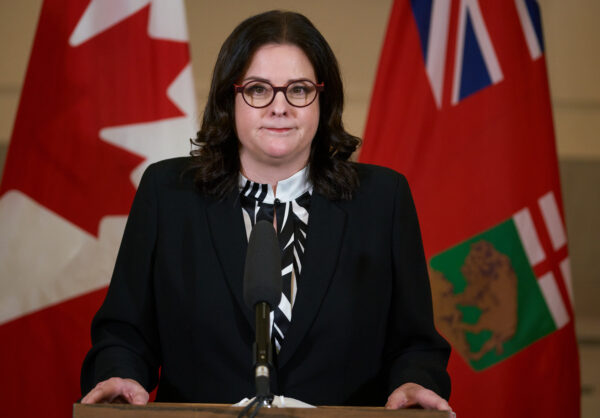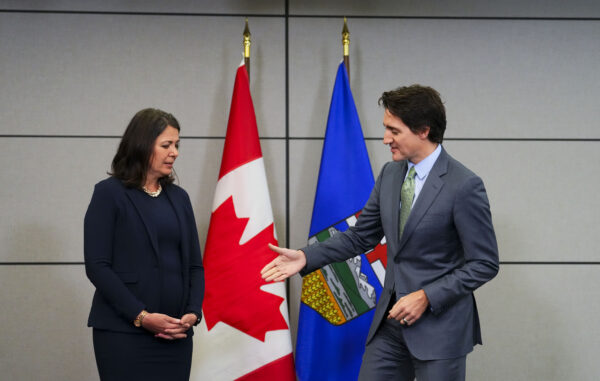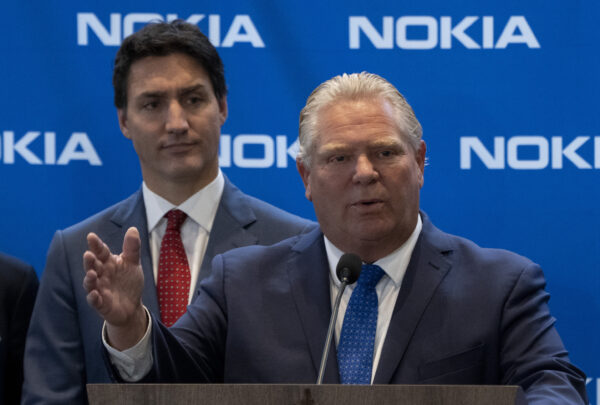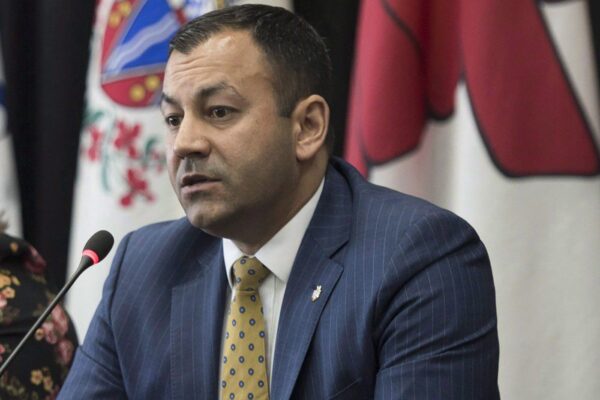

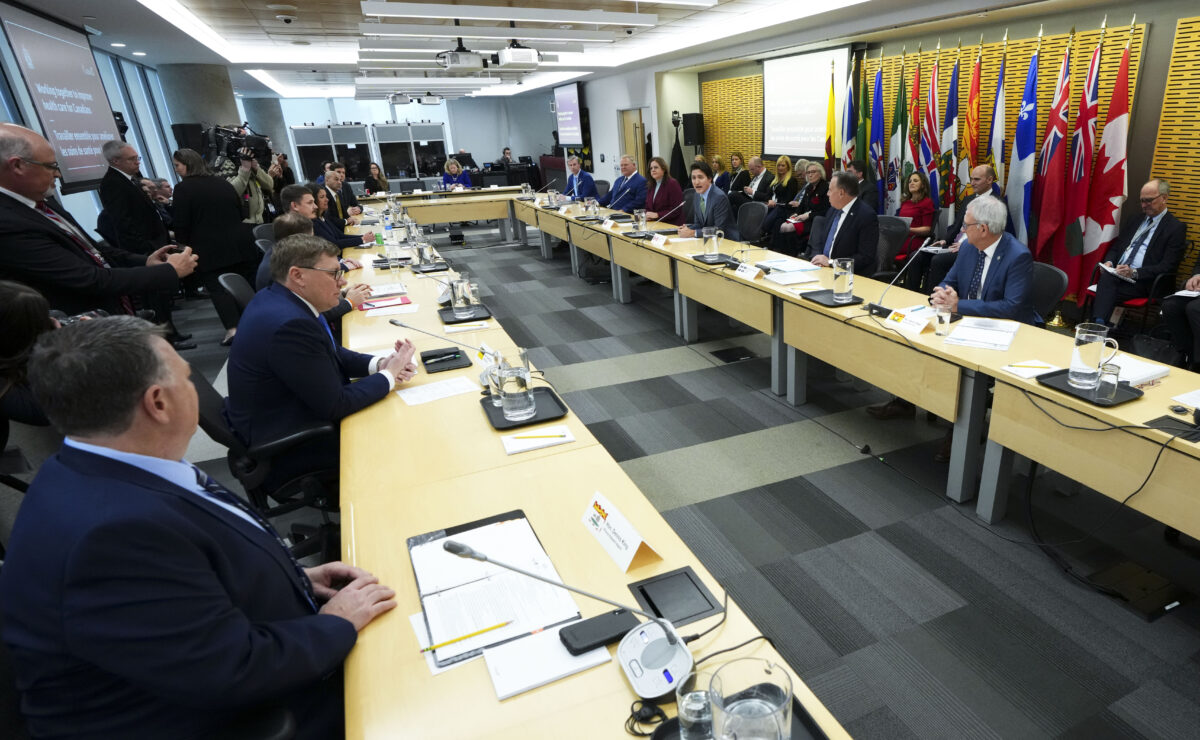
After the first meeting between Canada’s provincial and territorial premiers and Prime Minister Justin Trudeau in over two years, the premiers came away expressing disappointment in the federal government’s offer on health care transfers, and an intention to continue negotiations.
In a meeting in Ottawa on Feb. 7, Trudeau offered to increase the federal share of health care spending by $196.1 billion over the next decade, of which $46 billion would be new money.
However, the provinces budgeted $204 billion for health care in the current fiscal year and wanted the federal share to increase to 35 percent—about $28 annually going forward. Instead, the Canada Health Transfer (CHT) was set at $45 billion, or about 22 percent, which works out to, on average, less than $5 billion in new funding a year.
The increase to the CHT is also conditional upon the provinces sharing data with the federal government and digitizing the health information of Canadians.
“To access their share of the federal funding, including the five percent CHT guarantee, provincial and territorial governments are asked to commit to improving how health information is collected, shared, used, and reported to Canadians to promote greater transparency on results, and to help manage public health emergencies,” said a statement issued by the prime minister on Feb. 7.
At a news conference of premiers following the meeting with the prime minister, Heather Stefanson, Manitoba’s premier and chair of the Council of the Federation of Premiers, said the offer was “disappointing.”
“It’s significantly less than we were looking for in terms of the baseline funding injection into the Canada Health Transfer,” she noted.
She said while it was good to have a discussion with Trudeau, which had been requested “for quite some time,” the premiers would be reconvening as a council “within days” to have further discussions and continue negotiations with the federal government.
Nova Scotia Premier Tim Houston said that while he was “pleased with the structure” being offered, his province is “spending a significant amount on health care,” which would “absorb the new money very quickly.” He said it is important that the federal government recognize “the burden of the cost.”
Alberta Premier Danielle Smith issued a statement on Feb. 7 stating the federal government’s plan is a “start,” but overall “is significantly lower than the premiers anticipated.”
Smith said the federal government was looking for a “quantification of the COVID backlog in surgeries,” and added Alberta had fully “cleared” its backlog. Smith also noted that the federal government had earmarked “dedicated dollars,” which was an “important measure” for Alberta’s indigenous population.
The federal government has floated the idea of an “Indigenous-specific funding stream” of $2 billion over 10 years.
Ontario Premier Doug Ford said his province always “welcomed new funding, no matter how small or large.” However, he said Trudeau’s offer was “a starting point, a downpayment on further discussions.”
Ford said while he would not refuse new funding, he would have “lots of questions moving forward.”
Quebec Premier François Legault said, “We requested adding $28 billion to the base of $45 billion that is given every year by the federal government. We didn’t get that.”
B.C. David Eby called the federal government’s proposal “fiscally limited.”
Dennis King, the premier of Prince Edward Island, said his province came to the meeting with “hope and optimism,” and the federal government’s offer was “not insignificant.”
Caroline Cochrane, premier of Northwest Territories, said over 50 percent of the population of the N.W.T. is indigenous, and the region’s “spending was four times the average that other jurisdictions pay per person.”
Nunavut Premier P.J. Akeeagok said he needed time to “digest” the offer presented by the federal government, but felt his province could “try to secure” more. He said he appreciated the other premiers for “recognizing and supporting” the unique challenges of his region.
Yukon Premier Ranj Pillai, meanwhile, said while the offer was “fiscally restraining,” it wasn’t “just about money.” He said he could not “plan in five year cycles.”
Premier for Labrador and Newfoundland Andrew Furey called Trudeau’s offer “fiscally restraining.” He said he agreed with some of the other premiers that the issue was not just money. “It needs to [be] about modernization of the health care system that is really stuck in the 1960s,” he said.
The premiers still have to agree to any new accord with the federal government and develop “action plans” describing how they will use the funding to improve their health care—around four “shared health priorities,” which include “family health care; health workforce and backlogs; mental health and substance use; and modernizing the health care system with standardized information and digital tools.”

